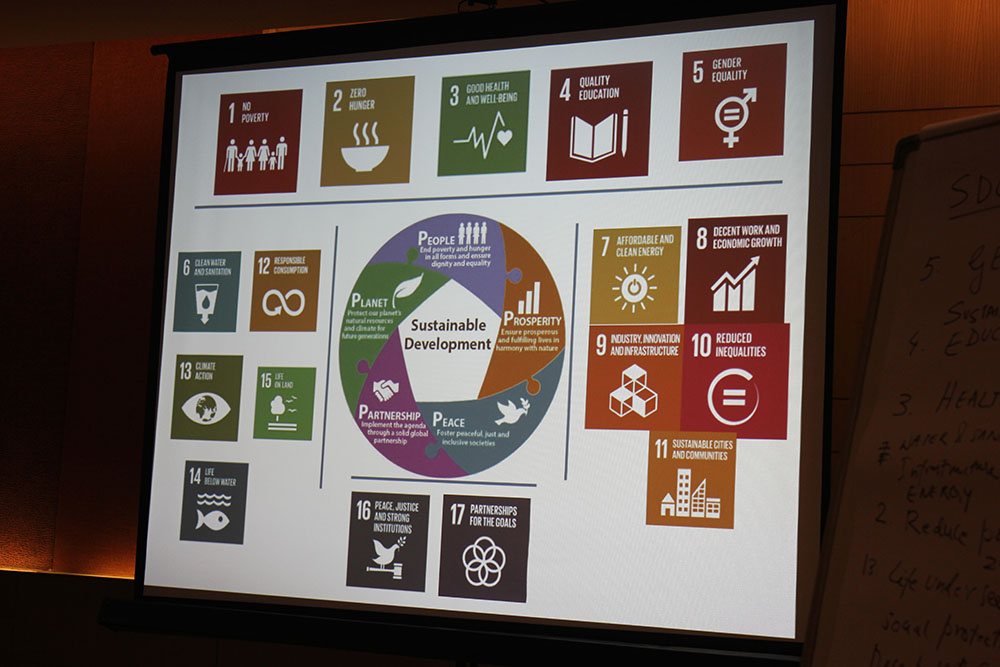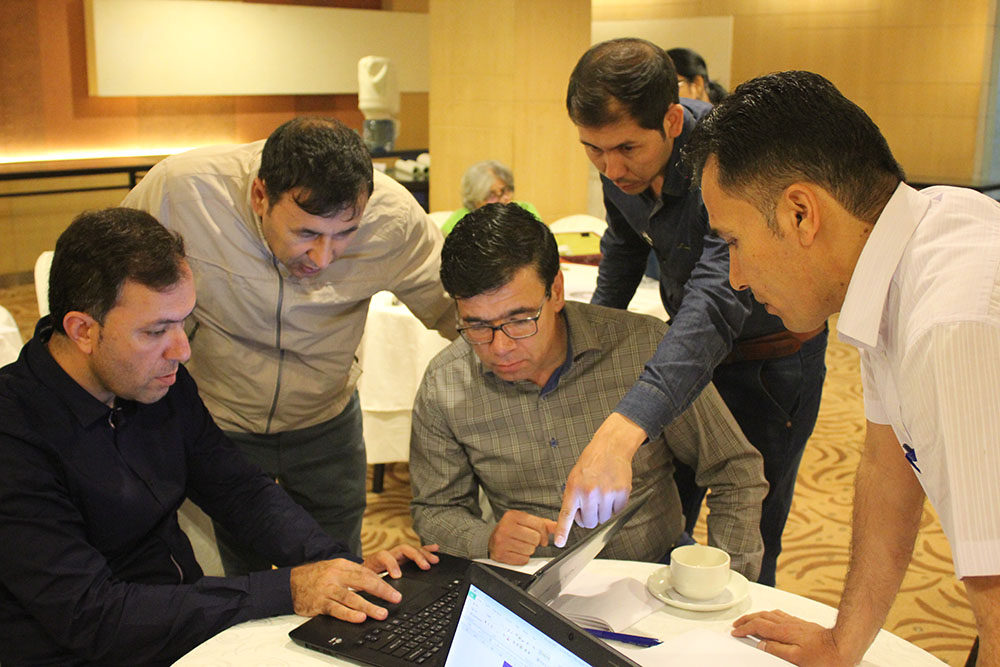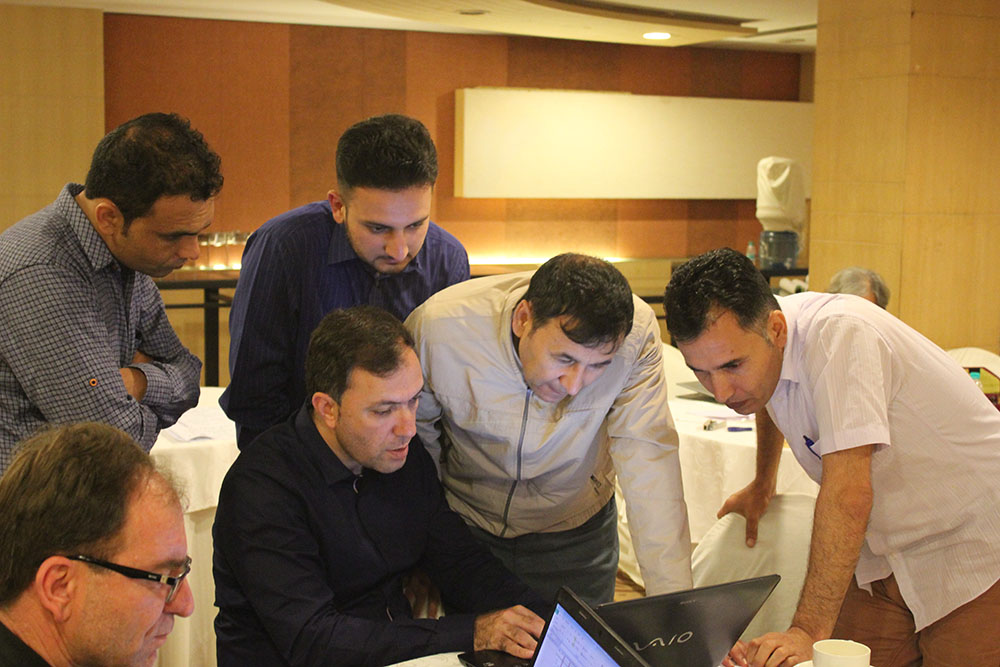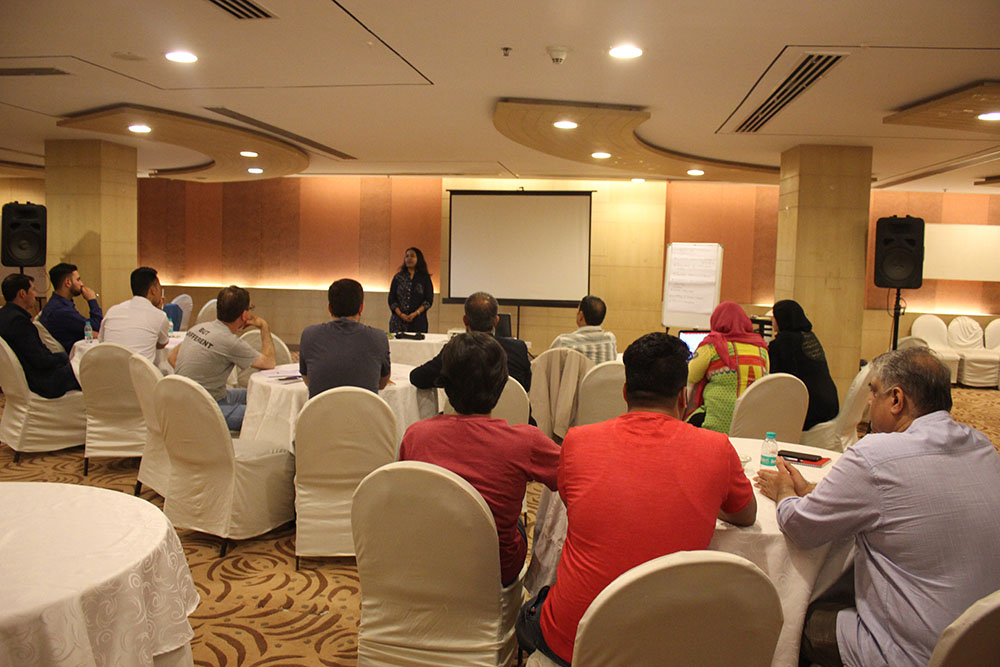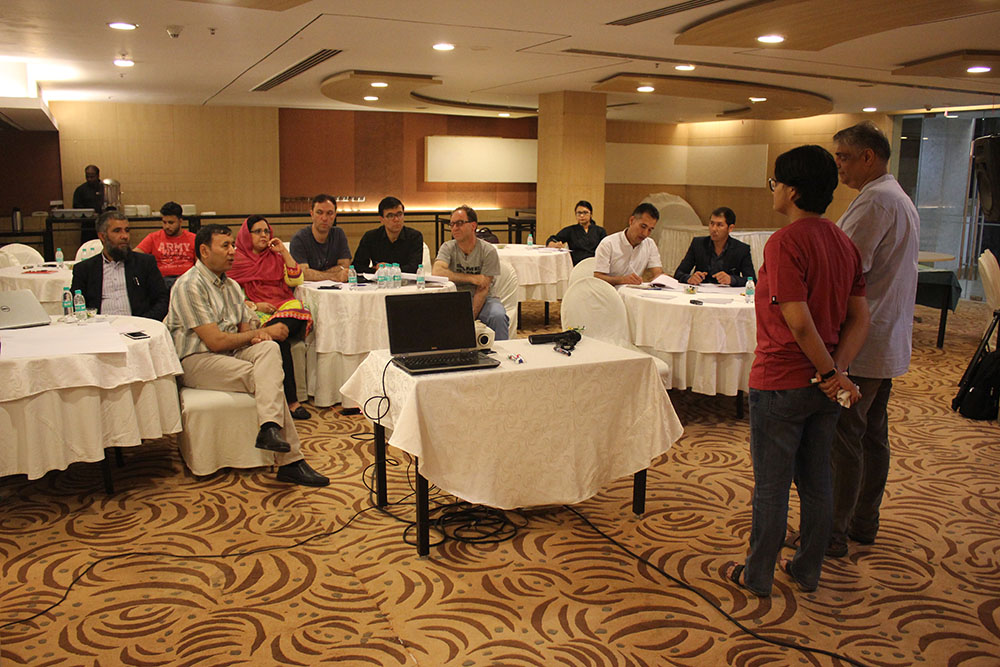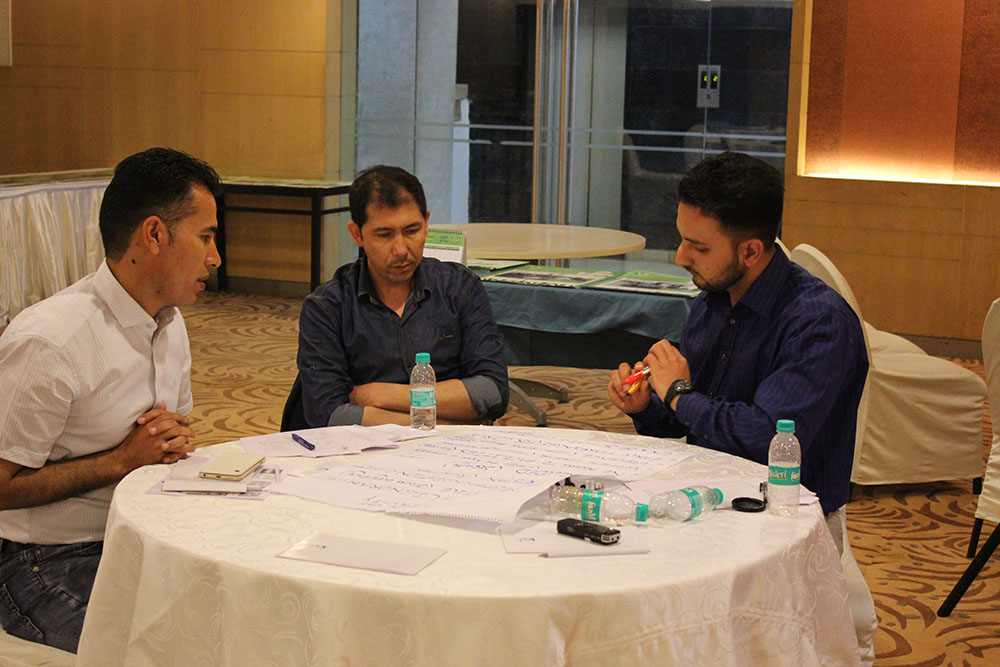Strengthening Coalition Activities in Afghanistan (21-26 May 2018, New Delhi, India)
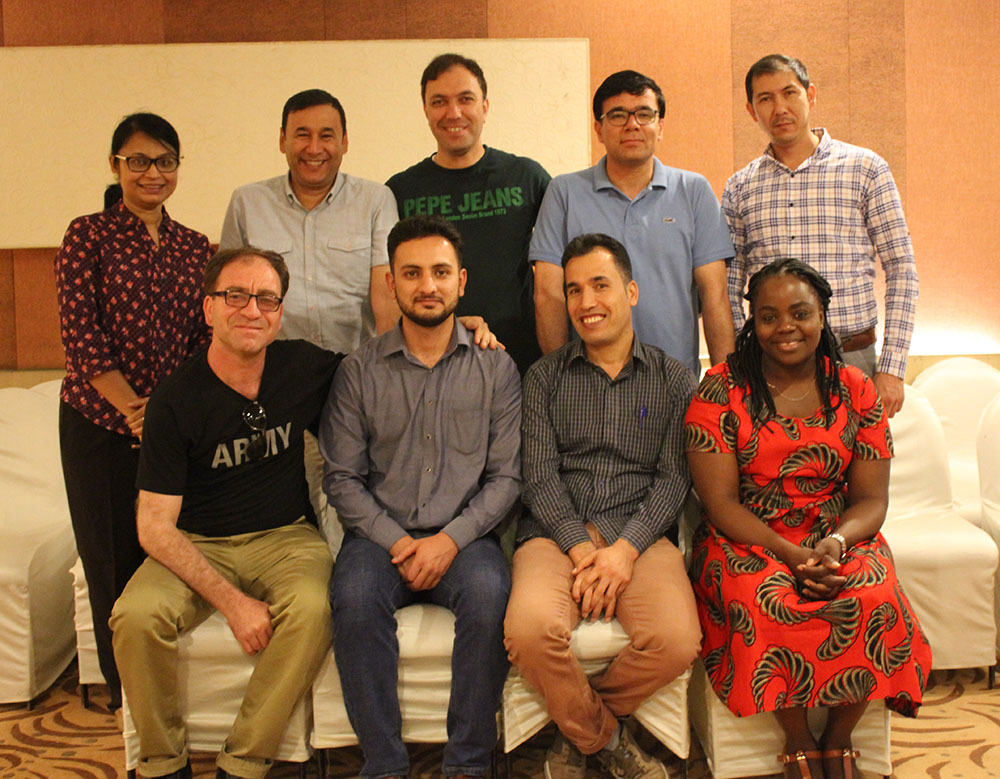
Asia South Pacific Association for Basic and Adult Education (ASPBAE) organized a Capacity Support and Advocacy Workshop in New Delhi for the Afghanistan National Education Coalition (ANEC). The workshop was organized to - (1) reflect on the coalition’s program activities in the past one year and strengthen the institutional processes and formalization of the coalition; (2) enhance capacities to deepen engagements with the SDG-SDG 4 policy spaces at national, regional, and global levels. ASPBAE mobilized resource persons and experts from within its membership in India and their affiliated networks. ANEC Board of Directors along with Secretariat staff participated in the workshop.
- Abdul Bashir Khaliqi, Afghan National Association for Adult Education (ANAFAE), Board of Directors Head
- Ali Parwaiz, Afghan Civil Society Forum-Organization (ACSF-O), Board of Directors Member
- Fazel Ahmad Fazel, Afghanistan National Teachers Council (ANTC), Board of Directors Member
- Jawid Ahmad Omari, Agency Coordinating Body for Afghan Relief - Organization (ACBAR), Board of Directors Member
- Mohammad Rahim Jami, Watch on Basic Rights Afghanistan Org (WBRAO/MSQEA), Board of Directors Member
- Nooria Safi, Women’s Capacity Building and Development Organization (WCBDO), Board of Directors Member
- Roshan Mashal, Afghan Women’s Network (AWN), Board of Directors Member
- Jan Mohammad Ahmadian, ANEC Secretary/National Coordinator
- Farhad Sarwari, ANEC Finance & Admin Assistant
- Naseer Ahmad Bayat, ANAFAE Deputy Director
- Shamsuddin Muhib, ANAFAE Program Manager
An interactive session, led by ASPBAE’s Anita Borkar, assisted ANEC in sharing their accomplishments and challenges. It was well noted that ANEC’s efforts in building rapport within the national government and engaging national level policy processes has resulted in its recognition as a credible platform that brings together all organizations working for education. ANEC also built the experience and skills to deal with issues such as frequent turn-over of Ministry officials and personnel, and lack of clear coordination channels between government and civil society.
Capacity building sessions were organized to update and strategies engagements on the policy spaces related to the SDGs and SDG 4 in particular. A session to deepen understanding on the links between SDG 4 with other goals, such as decent work and economic growth (SDG 8), gender (SDG 5), and reducing inequality (SDG 10) was led by Azad Foundation, India. ASPBAE also shared its plan for participation in the High-level Political Forums for 2018 and 2019, especially since the HLPF 2019 will focus on SDG 4. ASPBAE shared its plans for coordinated action around developing Civil Society Organizations (CSO) Spotlight Reports focused on SDG 4 for HLPF 2019.
The session on inclusive education was led by the Centre for Social Inclusion and Equity (CSEI) in New Delhi were the participants explored the different aspects that trigger exclusion and bias. Explaining the value of inclusive education, the facilitators guided the participants’ work on strategies to advance inclusive education. A session was also organized on Education for Sustainable Development led by an NGO, Pairvi.
In the session on Education for Sustainable Development, Ajay Jha from Pairvi oriented the participants on environmental and climate education, providing evidences of climate change, increased disasters, and changes in biodiversity. Explaining about Education for Sustainable Development (ESD), Ajay also highlighted the gaps in ESD – especially of recognizing the crisis only when it threatens the existence.
The session on gender in education was facilitated by Amrita Gupta of Azad Foundation, an ASPBAE member based in New Delhi. Linking SDG 4 with other goals, such as decent work and economic growth (SDG 8), gender (SDG 5), and reducing inequality (SDG 10), Amrita explained the inter-sectionalities that create discrimination and marginalization.
In his session on institutionalization and formalization of a coalition, Tejinder Bhogal, an independent consultant, explained the different structures of a coalition and strategies to work efficiently and bring effective social change.
The final day of the programmatic part of the meeting was dedicated to strategizing civil society engagement in national education policy processes and in developing an advocacy plan. ASPBAE’s Helen Dabu oriented the participants on the strategies and mechanisms of engaging in the National Education Strategic Plan process, membership in Local Education Groups (LEG), and ANEC’s role in the LEG. ASPBAE’s Susmita Choudhury led a session where participants identified and prioritized issues related to education in their country context, chalked out the goal and targets in addressing the issues, developed strategies, and identified networks/alliances to partner in advocating the issues. The participants also developed key messages based on the prioritized issues.
In the last two days of the meeting, participants were trained on the finance reporting tool by Ever Chokunonga from the Global Campaign for Education (GCE) Global Secretariat which is hosting the Asia Pacific Regional Fund Management Agency. The objective of the training was to ensure that standard processes and procedures for financial transactions and format for financial transaction processing, reporting, and submitting supporting documents are in place; identify and/or develop centers of excellence across coalitions to promote regional support and knowledge sharing; and ensure coalitions comply with CSEF requirements, partnership agreements, national statutory and legal requirements for accounts, audit, annual reports, and annual returns.
